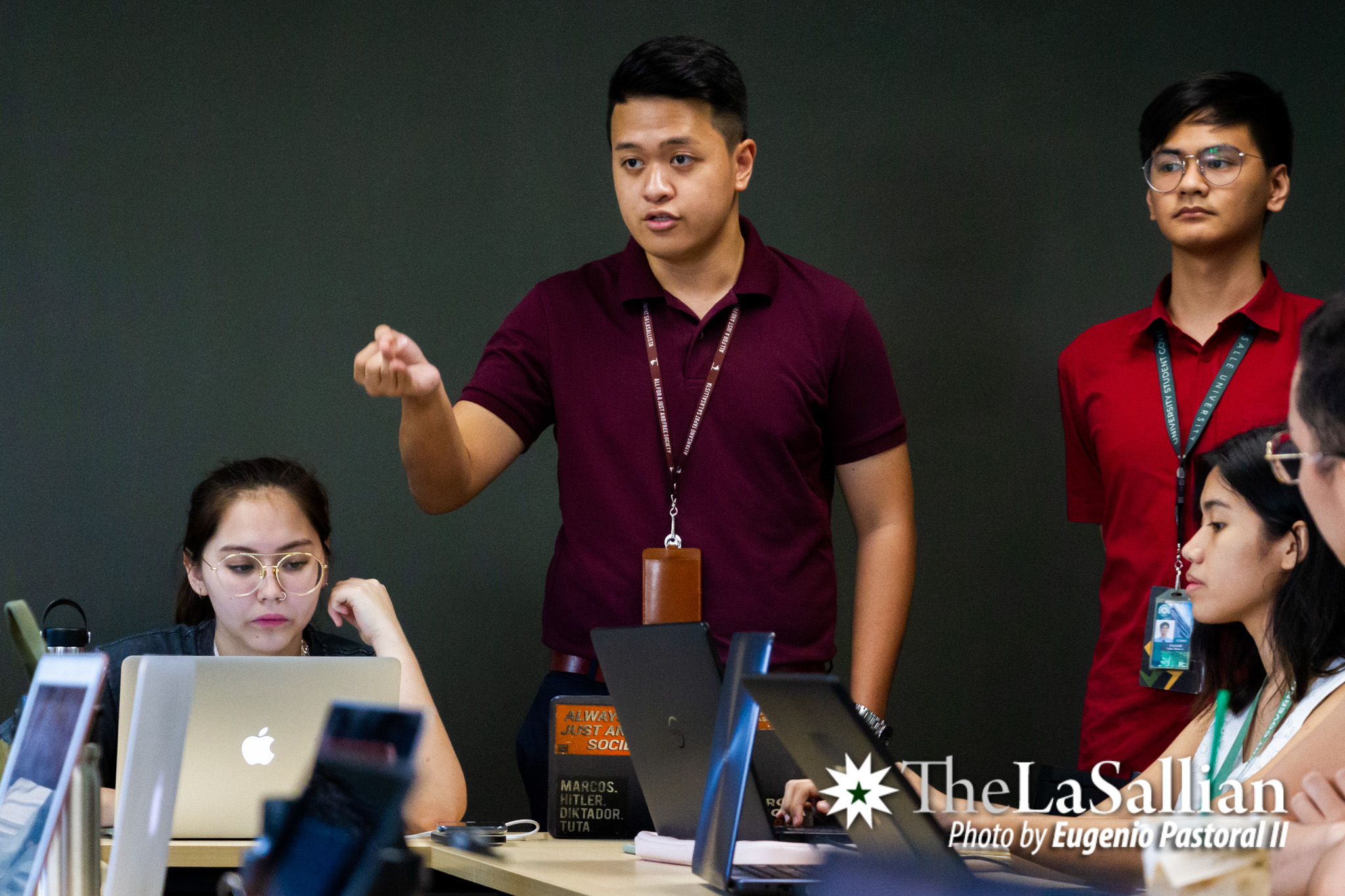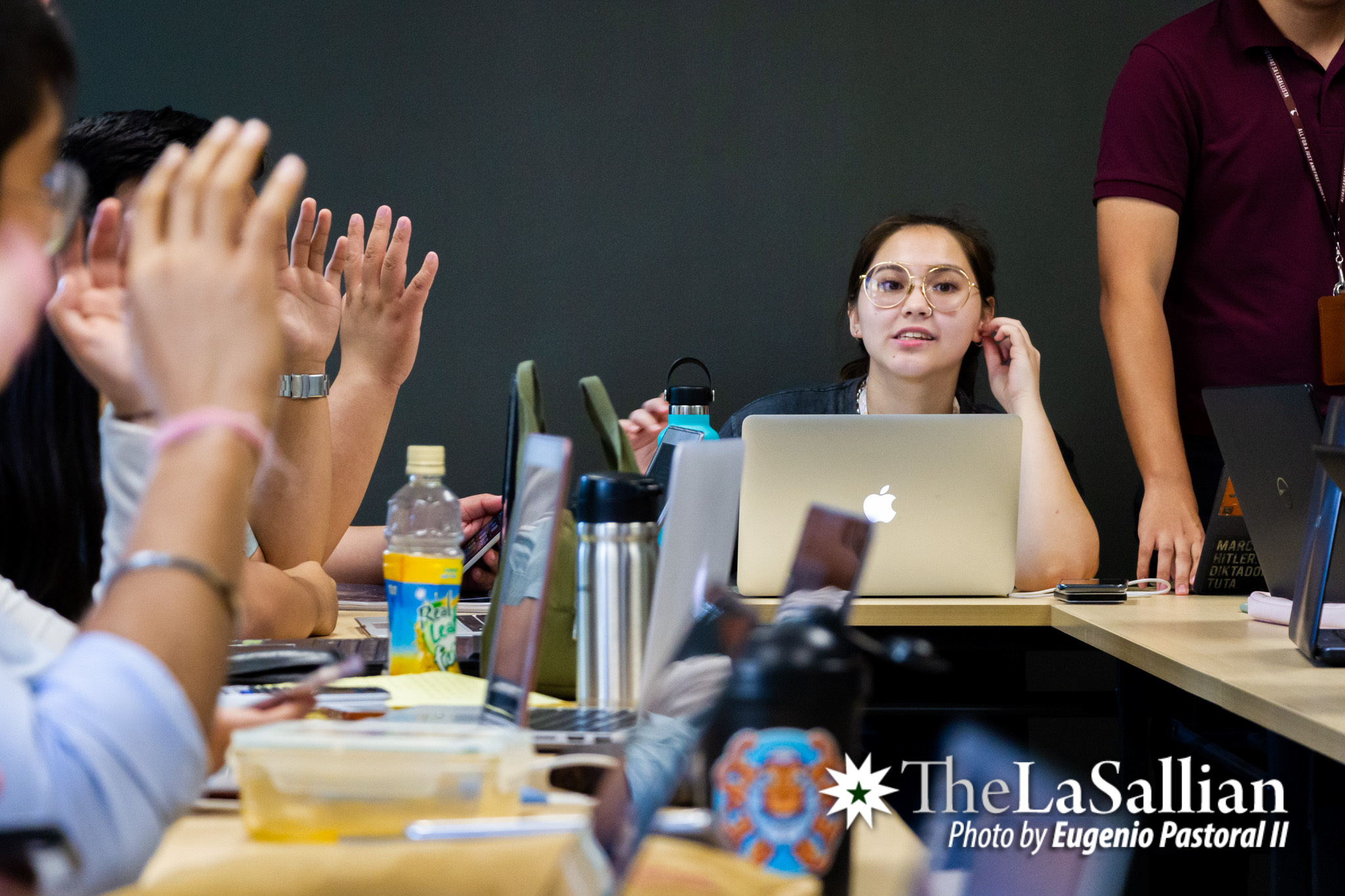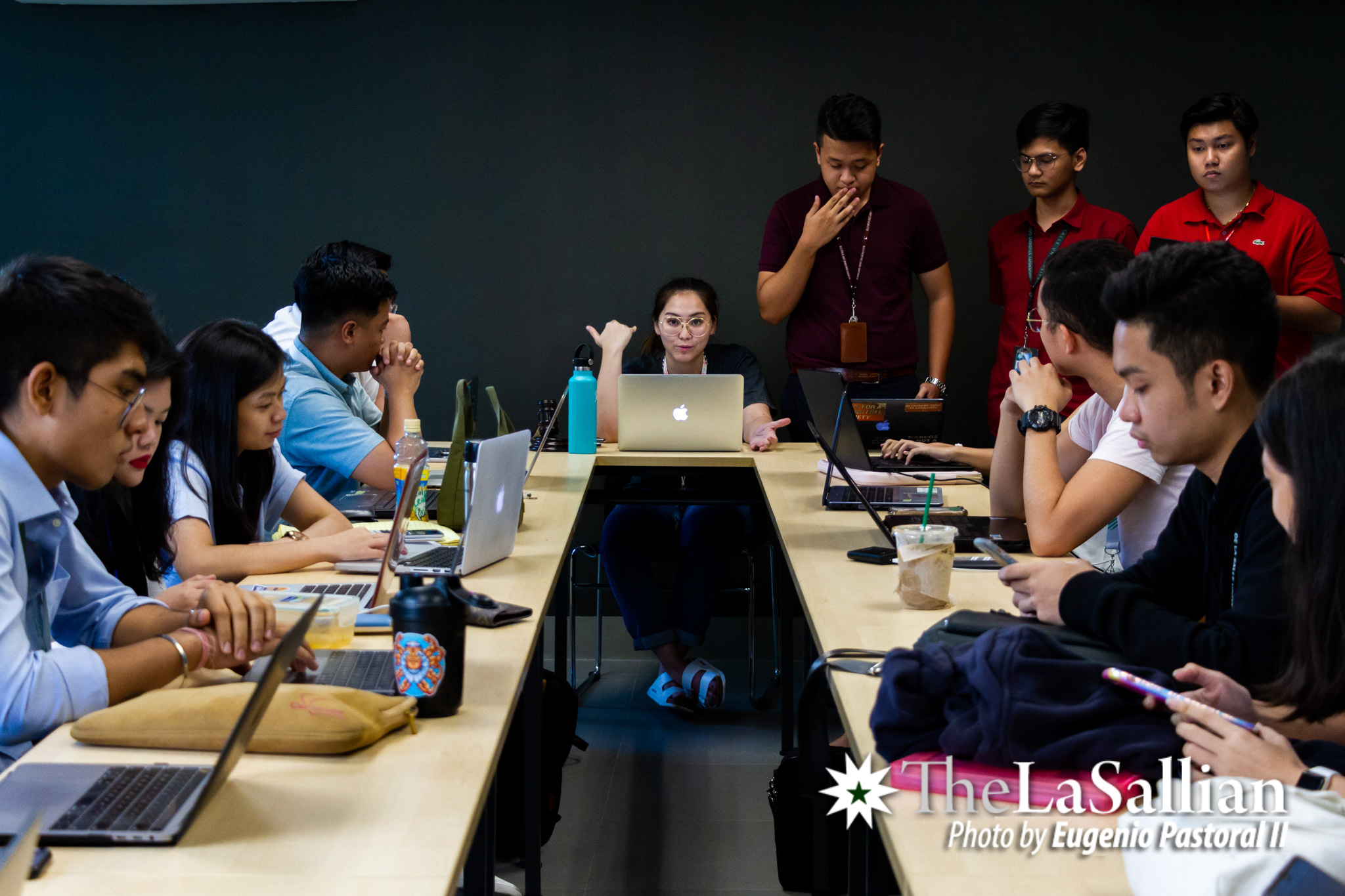The Legislative Assembly (LA) convened last July 5 at the USG Session Hall to discuss matters related to the upcoming General Elections (GE). Among their key agendas were the approval of the Absentee Voting Act of 2019—which would allow for students who are physically unavailable during the election proceedings to still cast their vote—and the revisions of the Election Code. Guidelines for the Commission on Elections (Comelec) Rules of Court were also passed, supplementing the Election Code for handling election-related cases.

Concerns on absentee voting
Alyansang Tapat Sa Lasallista (Tapat) Vice President for External Affairs Lance Dela Cruz and CATCH2T21 Representative Jamie Pastor led the proposal to have a system for absentee voting in place, explaining that the resolution will aid students who are undergoing practicum or are spending a term abroad. Dela Cruz also stated that the said system would help reach the required voter turnout of 50 percent plus one, a requirement needed to make elections valid.
In terms of registration requirements, the resolution stated that students interested are required to submit to Comelec a scanned copy of their DLSU ID and a supporting document that justifies their absence during the voting period. Dela Cruz clarified that Comelec will be in-charge of assessing the validity of the submitted documents.
With only two weeks left to prepare for the elections, Krisvin Briones of FAST2018 questioned the feasibility of the proposed system. “I want to be reassured na kaya siya,” he said.
(I want to be reassured that this can be done.)

Comelec Chairperson JC Ababan admitted that they are undermanned since most of their members were unavailable due to academic concerns. According to him, his fellow Comelec officers are occupied with their thesis requirements this term.
“On behalf of the commission, we can say that we are 40 to 50 percent prepared [for] this type of system,” he stated.
The issue of feasibility was further highlighted by Chief Legislator Stella Santos, who asked Ababan whether the proposal can be realistically implemented with limited time and manpower. “Despite [having Comelec] volunteers, there’s really no chance that this can be pulled off this election,” she argued.
To settle the dispute Briones offered a compromise: legislators would pass the resolution but Comelec will only conduct a “pilot test” during the upcoming GE. Overseas students will be sent a digital copy of the ballot, which they will then fill out and resubmit to the commission. The votes would be counted in the final tally, provided that it met Comelec’s metric of success. The LA agreed, and the resolution was approved with all voting in favor.

Election Code revisions, Rules of Court
Legislators also tackled amendments in the Election Code, which was last conducted in Term 1 of Academic Year 2018-2019. Among the revisions considered was limiting the window for candidacy filing to 20 school days from 31 days.
Meanwhile, the campaign period shall last for at least eight regular days instead of eight school days. Further, the Election Code was amended to explicitly prevent room to room campaigns outside of the prescribed campaign period. Extensions in the voting period, on the other hand, would be permitted in case of class suspensions.
Revisions for guidelines specific to the Science and Technology Complex Government were also discussed. Due to their low population, freshmen students from the Laguna Campus are now allowed to run for college president, overturning the previous eligibility rule that required candidates to have at least spent five full terms in the University. Legislators voted unanimously in favor of all the amendments.
Aside from the Election Code, the establishment of the Comelec Rules of Court was also proposed by Neil Gonzales of FAST2017 and Ababan. The new rules will support Article VI of the Election Code and will serve as a basis for the Comelec board in addressing election-related concerns by stipulating procedures for handling complaints and holding electoral hearings. All representatives present voted in favor of the resolution.
